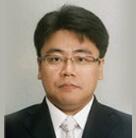Invited Speaker

Yutaka Fukuchi
Associate Professor, Tokyo University of Science, JapanSpeech Title: Rational harmonic mode-locking operation of bismuth-based fiber laser source
Abstract: Wavelength-tunable high-repetition-rate optical pulse generation is essential for many applications such as high-speed optical communication systems and optical signal processing. Harmonically mode-locked fiber lasers have proven to be able to generate wavelength-tunable short pulses with small timing jitter and gigahertz repetition rates. However, maximum repetition rate of the harmonically mode-locked fiber lasers is normally limited by the bandwidth of the intra-cavity modulator and the operating frequency range of the drive electronics. Recently, a scheme called the rational harmonic mode-locking has been proposed and demonstrated to generate optical pulses at very high repetition rates by driving the laser system at a frequency slightly offset from one of its harmonics. In this presentation, we review a stable and wavelength-tunable rational harmonic mode-locked short-cavity fiber laser employing a 1.5-m-long bismuth-oxide-based erbium-doped fiber and a 2.5-m-long bismuth-oxide-based highly nonlinear fiber. Since the short bismuth-oxide-based erbium-doped fiber has a wide gain profile, continuous wavelength tuning covering both the C-band and the L-band can be achieved. The pulse-amplitude equalization can also be achieved by adjusting the bias level and the modulation depth of the intra-cavity modulator. The bismuth-oxide-based highly nonlinear fiber has an ultra-high nonlinear coefficient of 1100 W-1km-1, about 50-60 times higher figure than those of the conventional silica-based highly nonlinear fibers. Because of this feature, the length of the nonlinear fiber for effective suppression of the supermode noise is dramatically shortened; the total cavity length is as short as 10 m. Thus, stable and amplitude-equalized optical pulses up to 40 GHz are successfully obtained for the entire tunable wavelength range.
Biography: Yutaka Fukuchi was born in Tochigi, Japan, on April 29, 1975. He received the B.S. and M.S. degrees in electronics engineering from Tokyo University of Science, Chiba, Japan, in 1998 and 2000, respectively, and the Ph.D. degree in electronics engineering from the University of Tokyo, Tokyo, Japan, in 2003.
In 2003, he joined the Department of Electrical Engineering, Faculty of Engineering, Tokyo University of Science, Tokyo, Japan as an Assistant Professor. From 2003 to 2005, he was also a Co-operative Research Fellow in Research Center for Advanced Science and Technology, the University of Tokyo, Tokyo, Japan. Then, he became a Junior Associate Professor of Tokyo University of Science in 2006. Since 2009, he has been an Associate Professor at this university. From 2013 to 2014, he was a Visiting Research Fellow with the High-Speed Optical Communications Group, Department of Photonics Engineering, Technical University of Denmark, Lyngby, Denmark. His research interests are optical communications, quantum optics, nonlinear optics, and their applications.
Dr. Fukuchi is a member of the Institute of Electrical and Electronics Engineers (IEEE), the Optical Society of America (OSA), and the Institute of Electronics, Information, and Communication Engineers (IEICE).